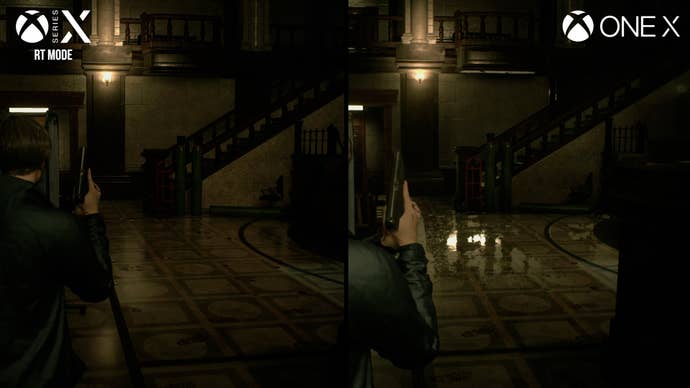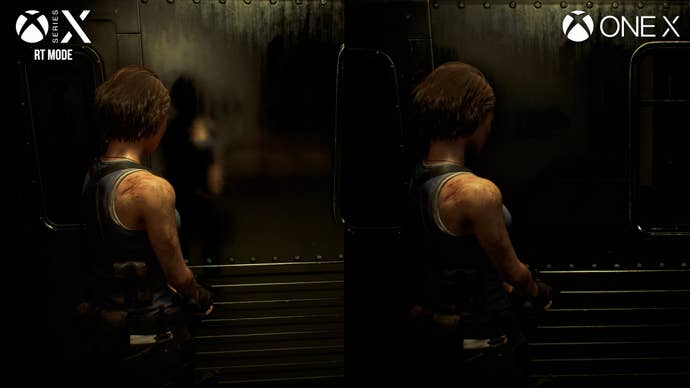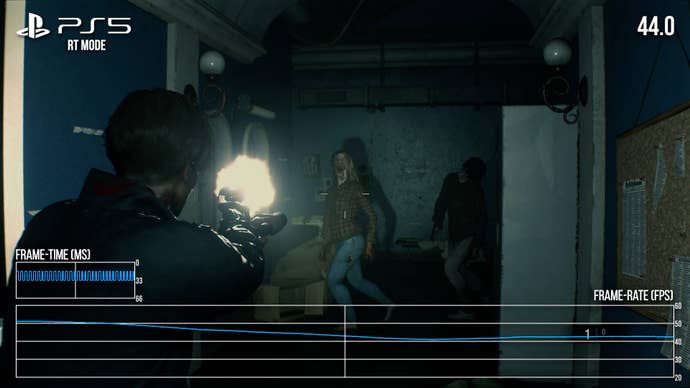UPDATE: Resident Evil 7’s patch added to the analysis.
The 120Hz high frame-rate mode is great across the board, however.
Owing to the sheer volume of test cases here, we’ve opted to split up the coverage.

With that in mind, we’ve opted to target the Remakes first.
This is compounded by low-quality reflections when the data is actually there.
Enemies are reflected as well, though alpha effects understandably don’t make the cut.

Ray traced global illumination is also in effect, though the results are generally on the subtle side.
The RT GI also seems to turn off the ambient occlusion, with somewhat mixed results.
Performance is a mixed bag depending on the mode chosen.

Perhaps not surprisingly, the RT mode is the heaviest on the hardware.
The more powerful machines operate mostly in 40-60fps territory - a bit of a frame-rate no-man’s land.
Constant judder and inconsistent input are the result on a conventional display.

The performance drop is disappointing, to be honest.
VRR saves the day of course and will give you a smooth and stable-feeling output on a suitable screen.
But VRR should be a bonus, not a necessity.

With some tweaks, more stable frame-rates should be possible in these modes.
And that’s a shame, because I think these modes present some compelling features.
Resident Evil 3 particularly benefits, with its high density of reflective surfaces.

Perhaps these performance problems can be fixed in time.